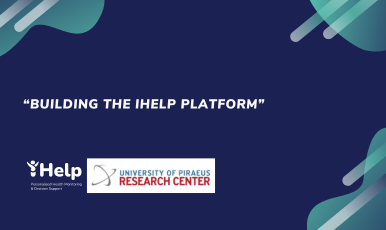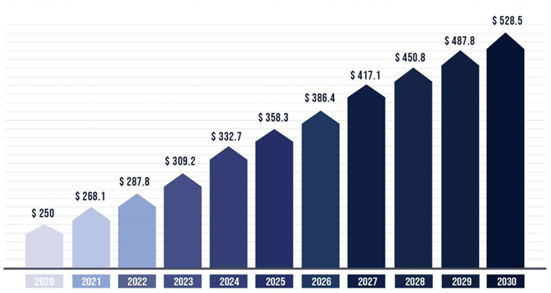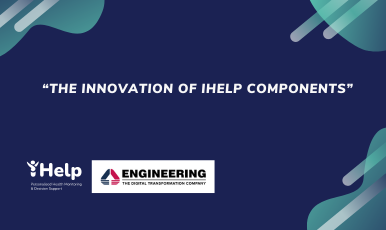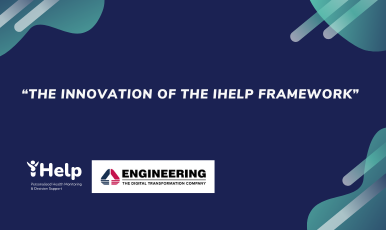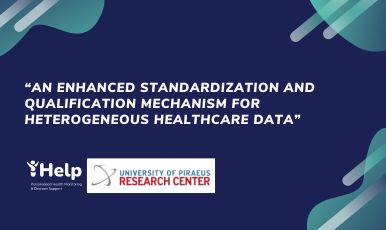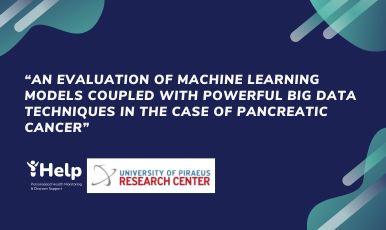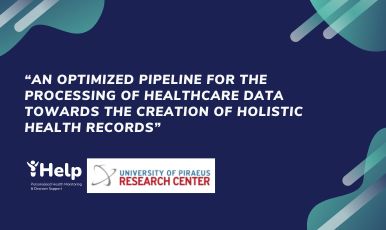The modern healthcare landscape and market
As the healthcare domain continues to become more complex with a tremendous amount of data being generated, all relevant stakeholders need to find effective means of fully collecting, integrating, interpreting, exploiting, and evaluating these large volumes of clinical data. Leveraging advanced techniques for addressing these challenges will allow Healthcare Professionals (HCPs), and administrators in healthcare organizations to make crucial decisions about treatment plans, medications, and prevention measures that could improve the treatment and the Quality of Life (QoL) of their patients. Placing healthcare data into the right hands quickly depends on the utilization of Health Information Systems (HIS) that seamlessly and intelligently integrate healthcare with information technology. A HIS enables healthcare organizations to collect, store, manage, and analyze key data of their patients in order to provide data-driven and evidence-based decisions regarding various aspects of patient care. The emerging need for advanced and AI-based HIS is also highlighted by recent surveys that indicate the increase in the global HIS market size. As depicted in Figure 1 the market value of modern HIS was calculated at USD 287.8 billion at the end of 2022 and is expected to reach USD 528.49 billion in 2030 and register a revenue CAGR of 7.8% during the forecast period (2022-2030)[1]. The increased government investments in the development and digitalization of the healthcare infrastructure have significant contributions to the development of the global HIS market. While the high demand for remote patient monitoring and the development of personal health records are also significantly driving its adoption rate.
Technological advancements in the healthcare domain, such as the use of IoT, Big Data, and AI are significant factors propelling the market growth. Especially when it comes to the domains of data interoperability, AI, and Machine Learning (ML), several new algorithms and solutions are being widely adopted and integrated into HIS to accurately predict the risk of developing diseases in their early stages, monitor patients care and provide personalized prevention and intervention measures based on historical and behavioral/ lifestyle health datasets [1]. The standardized integration of such data and recalibration of learning models allows the development of AI techniques that provide timely decision support to all stakeholders in the value chain, including HCPs and policymakers using relevant interfaces and Decision Support Systems (DSS). In this respect, recent research works and surveys demonstrate this increasing need of leveraging the capabilities of AI in the healthcare domain [2] – [3].
The iHelp platform: A user-centric, integrated, and decentralized platform
To address the emerging needs and challenges of the modern healthcare domain the iHelp seeks to introduce a user-centric, real-world, integrated, and decentralized platform. iHelp aims to introduce a holistic HIS, as it delivers a novel personalized healthcare platform highly focused on early identification and mitigation of the risks associated with Pancreatic Cancer (PC) based on the application of advanced AI-based learning and decision support techniques. Following applied research, it aims to address the increasing need for the delivery of personalized healthcare based on AI support for analysing patient reactions and behaviors to prescribed prevention and intervention measures.
The iHelp platform (see Figure 2) enables the collection, integration, and management of health-related data from various sources (medical records, lifestyle, behavior data, and social media interactions) in a standardized structure, which is called Holistic Health Records (HHRs) [4]. The HHR and AI-based actionable insights capabilities will be exploited to provide QoL-oriented added-value care services for improved QoL. On top of this, iHelp introduces a set of innovative multi-level and open-source decision support mechanisms to facilitate the development of personalized risk detection, prevention, and intervention models. iHelp converges techniques from multiple areas, including clinical studies and research on Pancreatic Cancer, Oncology, Artificial Intelligence (AI), Federated Learning (FL), Big Data analytics, IoT, software engineering, social media analytics, and cloud technologies into a unified software architecture. The iHelp system also provides a way of developing advanced AI techniques that can model the specific conditions of the individual cancer patient, in order to make reliable predictions that can be used in the development of effective patient care plans. Most of its design, the iHelp platform is open by design and fully exploitable, putting emphasis on usability potential integration with different HIS and platforms, thus contributing towards the establishment of a European Platform for Personalised Healthcare.
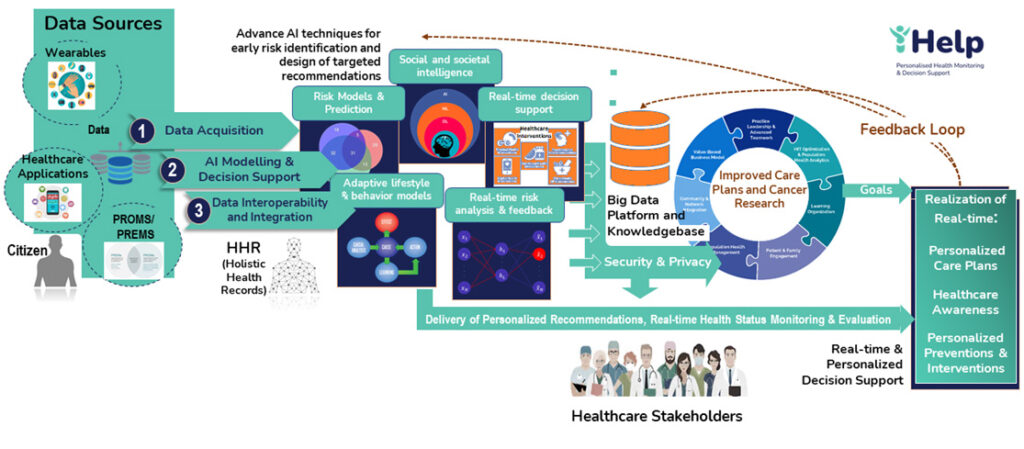
The key components of the iHelp Platform
The key objective of the iHelp platform is the provision of personalized healthcare recommendations by utilizing integrated data and user-oriented interfaces, prediction, prevention, and intervention models, engagement methodologies, and innovative business models that take into account user needs and individual preferences. In this respect, the iHelp platform provides enhanced personalized experiences and recommendations based on individuals’ primary and secondary data through different integrated devices and systems. To this end, the iHelp platform seeks to deliver a set of innovative multi-level and user-centric solutions in the research, healthcare, and business communities. These solutions/ components are listed below:
- AI Models for Personalized Health Prediction,
- Analytic Workbench,
- Decision Support System (DSS),
- Big Data Platform,
- Social Media Analyser,
- Monitoring, Alerting, and Feedback Component,
- Holistic Health Records,
- Tailored Conversational Coaching System,
- Offline Model Learning System,
- Advanced Notebook,
- Impact Evaluator,
- Bounce Mitigation Toolkit
The iHelp platform incorporates these components while preserving the data ownership aspects to realize the complete data path: from acquisition, and cleaning, to data harmonization, interoperability, integration, modeling, analysis, information extraction, interpretation, and decision support (through appropriate alerts, visualization, and reports). The integrated solutions developed in the iHelp platform provide personalized decision support to not only HCPs and their patients but also to policymakers who will be able to perform evaluations and optimizations of health or treatment-related policies through adaptive visualizations concerning the outcomes of evidence-based analysis of prevention recommendations.
The iHelp offered as Platform-as-a-Service (PaaS)
HIS, in general, take care of administerial aspects and patients’ medical data, amongst many other things, and their adaptation and utilization are of high importance in the modern healthcare and research society. The iHelp platform does not fall out of this trend and, as such, can benefit from the increased revenue prediction by offering its insights and components through different approaches. As such, the applied and robust implementation of the platform supports the development, deployment, and operation of different workflows and technologies in a cloud-based environment, such as AI pipelines, based on an “AI-as-a-Service” / “AI-on-Demand” approach (e.g., it provides “AI-based Personalized Recommendations as a Service”). Such Analytics-as-a-Service (AaaS) solutions offer fully customizable AI analytics and insights with end-to-end capabilities, organizing, analyzing, and presenting data in a way that lets even HCPs gain valuable insights and enhance the decision-making processes. The latter will be facilitated in the context of the platform through the provision of various mechanisms and components, such as the Analytic Workbench and the DSS.
Moreover, the implementation of the platform has been followed a federated approach and a “Platform-as-a-Service” architecture for enabling its utilization and deployment also in a decentralized way. Following this approach, a fully deployed and ready to be installed instance of the iHelp platform can be delivered to each stakeholder. Following a containerized approach by its design it can be installed in stakeholders’ servers and premises. While the manifests that are developed contain all the needed components required to establish and run the whole iHelp platform. To further support this approach the iHelp platform has been deployed and implemented on top of a Kubernetes cluster. The latter also allows the deployment of the platform as a whole in hospital premises. This is of highest interest as the patients’ data are highly sensitive, thus in the majority of the use cases they cannot leave the hospital premises and the solution that will be offered should also operate locally.
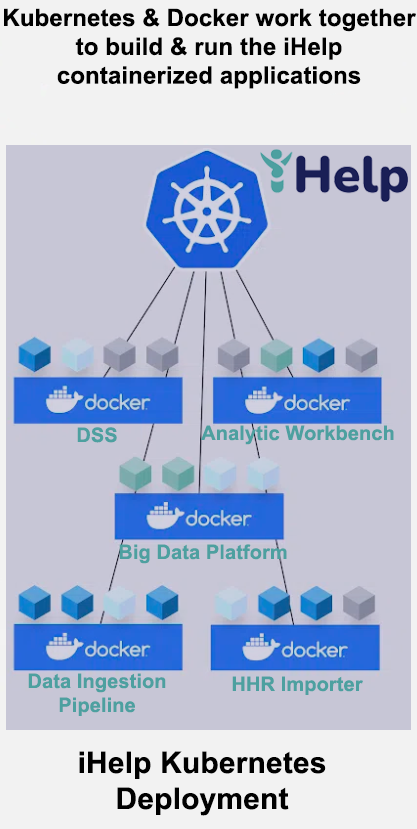
iHelp platform on top of Kubernetes
The deployment of the iHelp platform on a Kubernetes cluster provides numerous benefits as it offers the management of its applications and components in a more efficient and scalable manner (as depicted in Figure 3). Kubernetes is a container orchestration platform that automates the deployment, scaling, and management of containerized applications. Therefore, all iHelp’s software components are dockerized by using corresponding docker images in order to create containers, or pods in the Kubernetes terminology. Kubernetes manifests are used to deploy the different components to the provided cluster. To this end, Kubernetes facilitates the automation of the deployment, and as a fact, the solutions can be portable to whichever cluster.
The key benefits of deploying the platform on Kubernetes is the improved scalability and increased resiliency. Kubernetes can automatically scale applications based on demand, ensuring that there are enough resources available to meet the needs of users. While it can automatically detect and recover from failures, ensuring that applications are highly available, and downtime is minimized. Finally, Kubernetes also provides a high degree of flexibility and portability. All the iHelp applications deployed on Kubernetes can be easily moved between different environments, such as on-premises data centers. The latter is especially useful as the iHelp platform needs to quickly and easily update and scale its applications across multiple locations.
To conclude, despite the wealth of evidence that data analytic techniques (when applied to Cancer-related datasets) have provided and the consequent advances in Cancer treatment that have been made in recent years, many risks and associated conditions are still not being analyzed, and targeted recommendations remain to be explored. The iHelp platform aims at changing this by incorporating AI-driven actionable insights into Pancreatic Cancer prevention strategies, screening programs, and treatment processes. By utilizing the above-mentioned components and advanced technological approaches, the iHelp platform seeks to acquire and exploit domain knowledge, patient information, and new insights into the underlying risks of PC that can be derived from heterogeneous data sources through a holistic data management platform. The latter will facilitate the promotion of scientific advancements and the transmission of project results to relevant stakeholders. It should be noted that the project’s main outcomes (e.g., HHRs, AI analytics, design of personalized recommendations, etc) are validated in 5 high-profile pilots carried out in 5 different countries within and across European Union, i.e., Italy, Spain, Bulgaria, United Kingdom, and Taiwan. The high-risk individuals of these pilot cases are selected to take part in studies focused on early detection of risks and assessment of personalized recommendations.
References
[1] Mavrogiorgou, A., Kiourtis, A., Manias, G., Symvoulidis, C., & Kyriazis, D. (2023). Batch and Streaming Data Ingestion towards Creating Holistic Health Records. Emerging Science Journal, 7(2), 339-353.
[2] Rong, G., Mendez, A., Assi, E. B., Zhao, B., & Sawan, M. (2020). Artificial intelligence in healthcare: review and prediction case studies. Engineering, 6(3), 291-301.
[3] Ibrahim, M. S., Mohamed Yusoff, H., Abu Bakar, Y. I., Thwe Aung, M. M., Abas, M. I., & Ramli, R. A. (2022). Digital health for quality healthcare: A systematic mapping of review studies. Digital Health, 8, 20552076221085810.
[4] Manias, G., Den Akker, H. O., Azqueta, A., Burgos, D., Capocchiano, N. D., Crespo, B. L., … & Wajid, U. (2021, September). iHELP: Personalised Health Monitoring and Decision Support Based on Artificial Intelligence and Holistic Health Records. In 2021 IEEE Symposium on Computers and Communications (ISCC) (pp. 1-8). IEEE.
[1] https://www.precedenceresearch.com/healthcare-information-systems-market
[2] https://www.precedenceresearch.com/healthcare-information-systems-market

